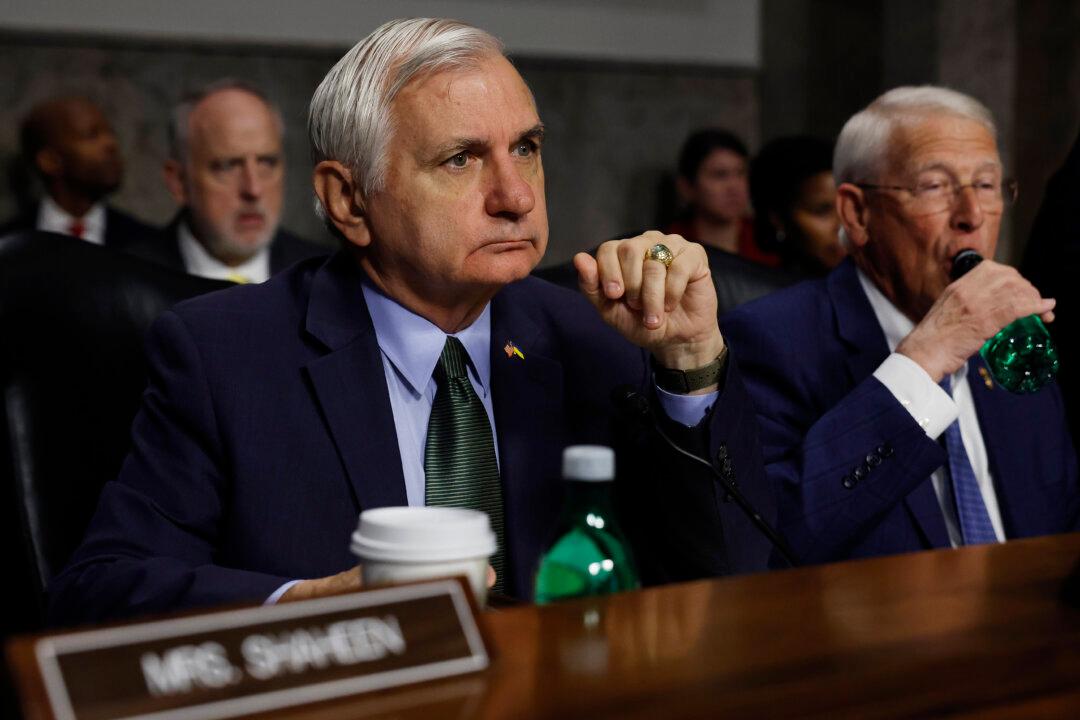WASHINGTON—Current efforts by congressional Republicans to slow or stop U.S. funding for Ukraine will negatively impact security throughout the world, according to the chair of the Senate Armed Services Committee.
“What’s disappointing is that it seems that in the House particularly they are ready to fund Israel but not…Ukraine,” said Sen. Jack Reed (D-R.I.) during a Nov. 14 defense summit hosted by Politico.




